Ypsilanti Heritage Foundation
The Ypsilanti Heritage Foundation, founded in 1974, is a private nonprofit organization encouraging preservation and renovation of the wealth of historic architecture in Ypsilanti, Michigan, USA.
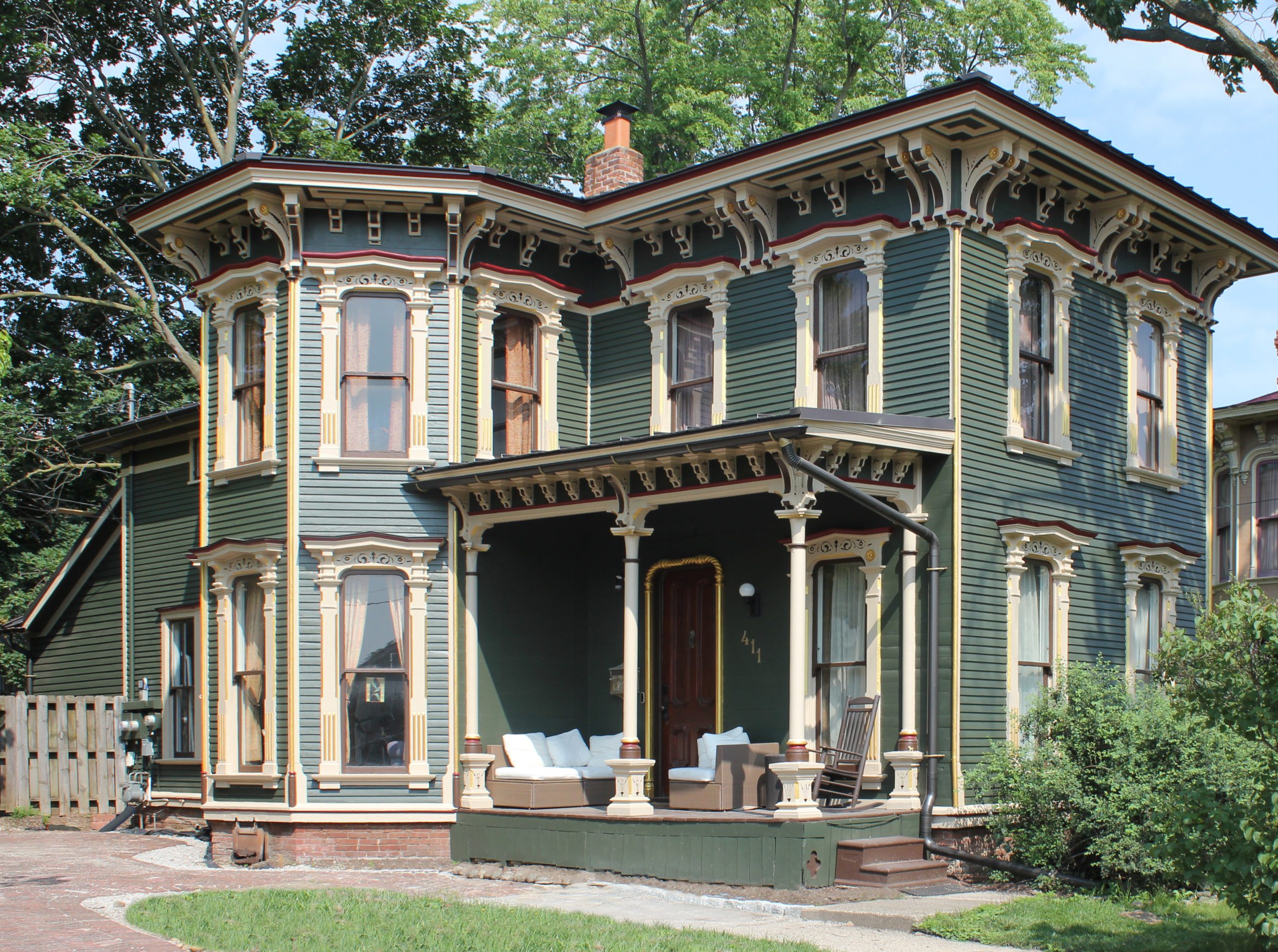
Historic Preservation in Ypsilanti: Then and Now
Renovated historic buildings listed starting from most recent YHF Historic Marker award
49 S. Summit
Craftsman, built c.1903
YHF Historic Structure Marker awarded 2022
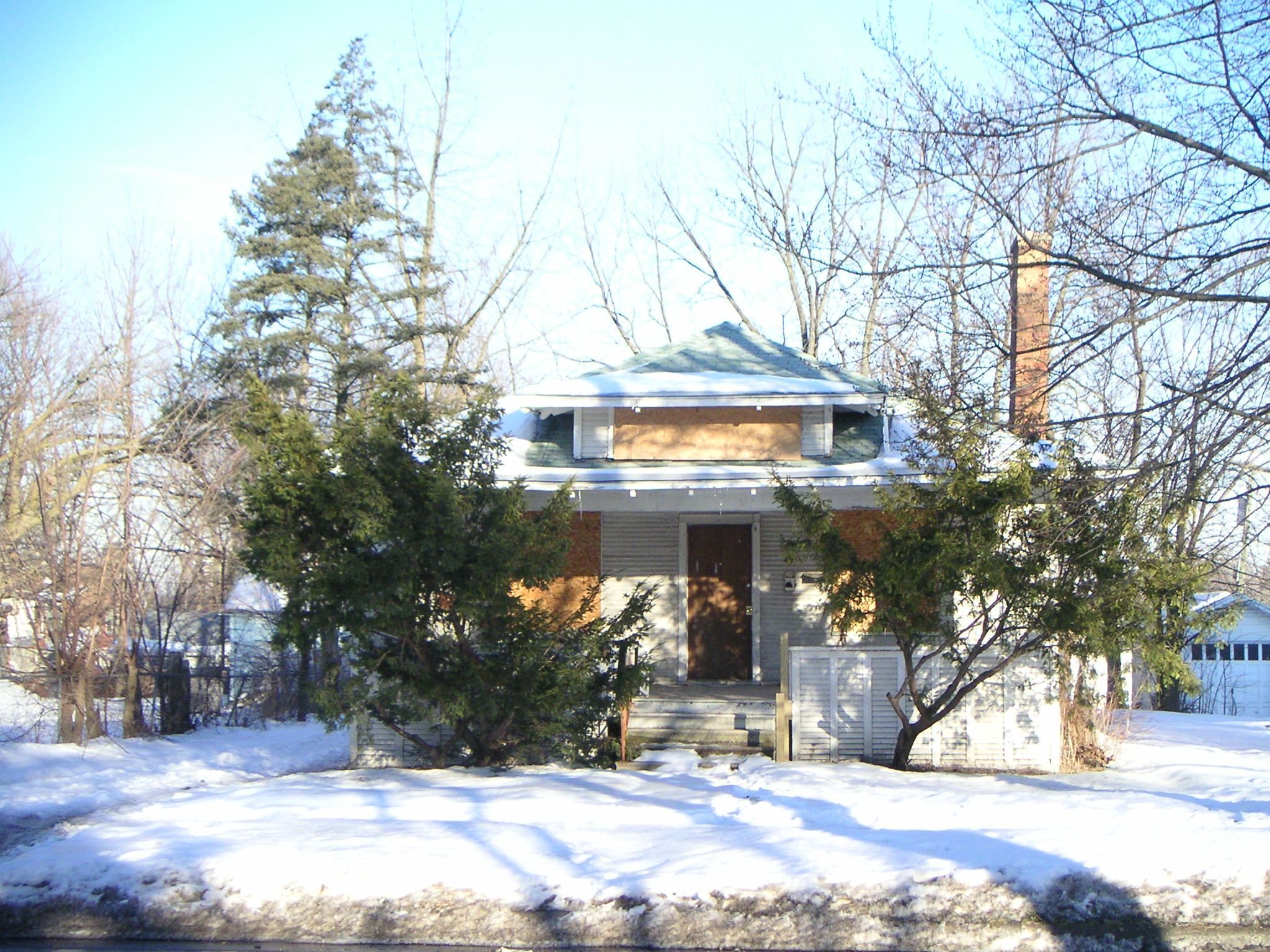
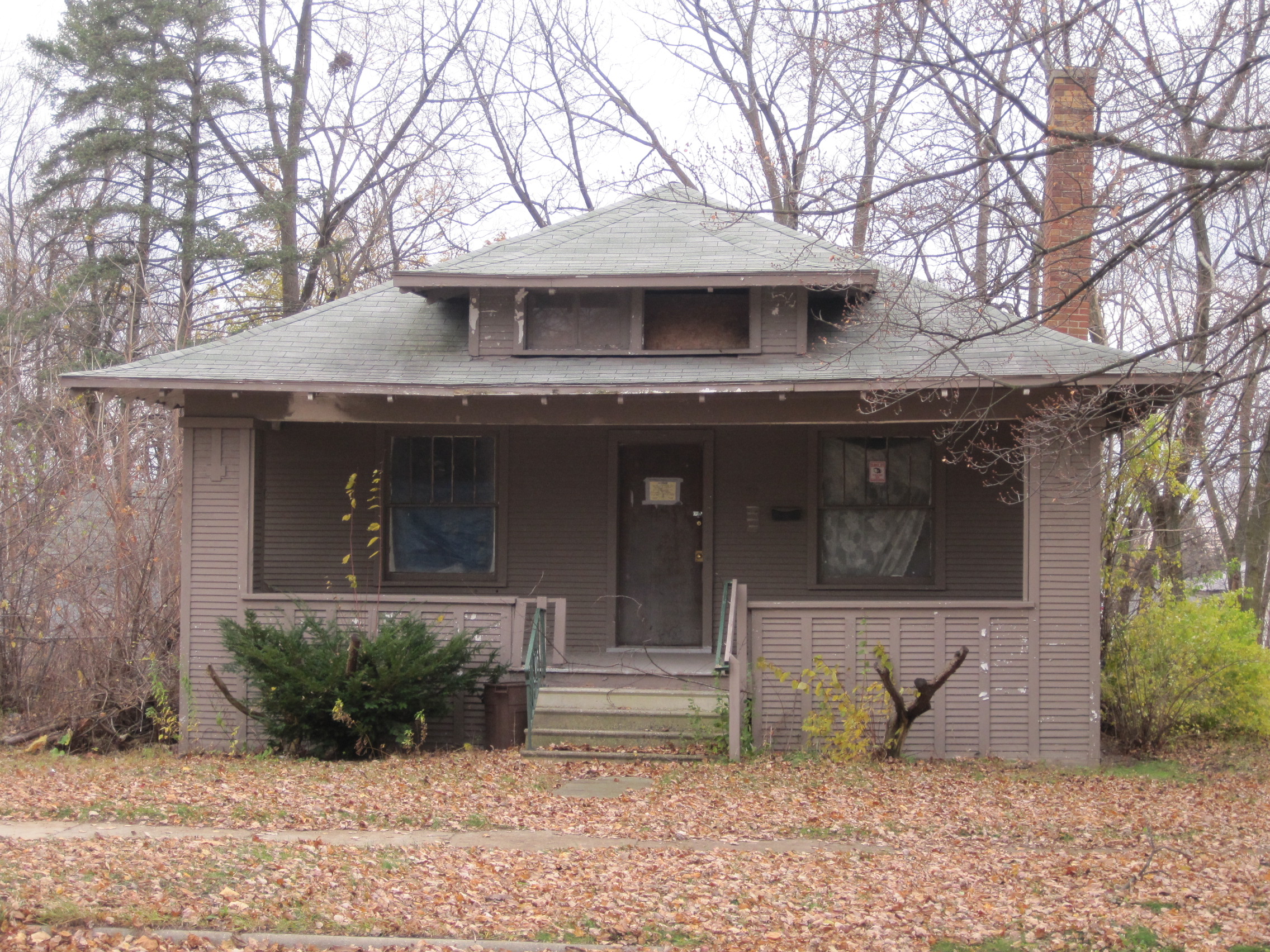
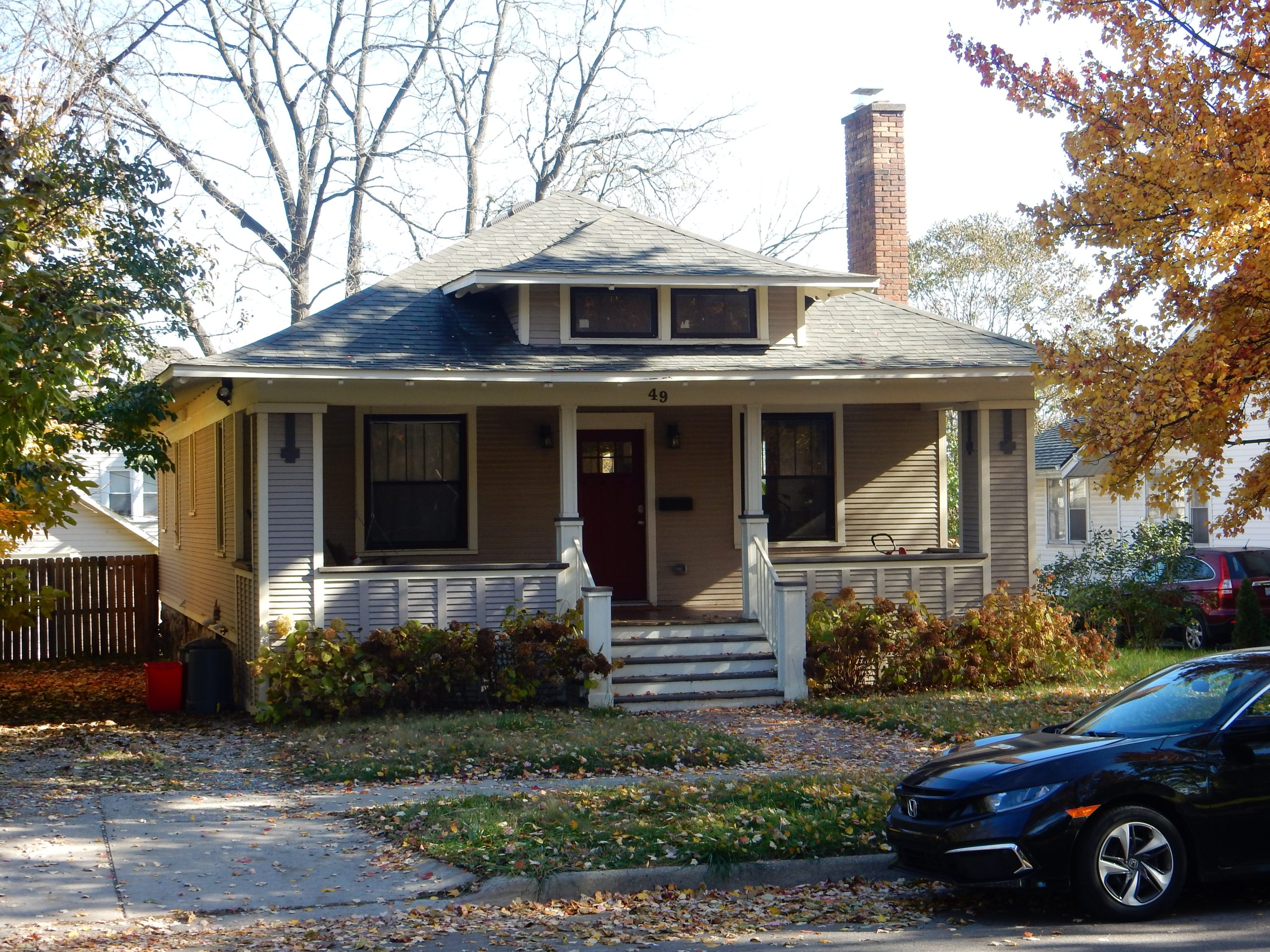
49 S. Summit is a c.1903 early Craftsman house. This style is also known as a California bungalow. The house reflects the transition from the late Prairie style (1900-1920) with the hipped roof and dormer to the early Craftsman (1905-1930) with the exposed rafters on the roof overhang. According to the McAlester architectural style book, only 10% of Craftsman houses have hipped roofs.
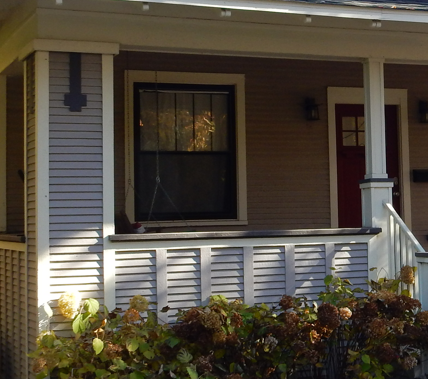
The vertical trim below the porch opening survived after years of landlord neglect. Now the trim is handsomely displayed by the contrasting paint colors. This house is another architecturally interesting Ypsilanti gem!
Thompson Block
400 N. River, built 1860
YHF Historic Structure Marker awarded 2020
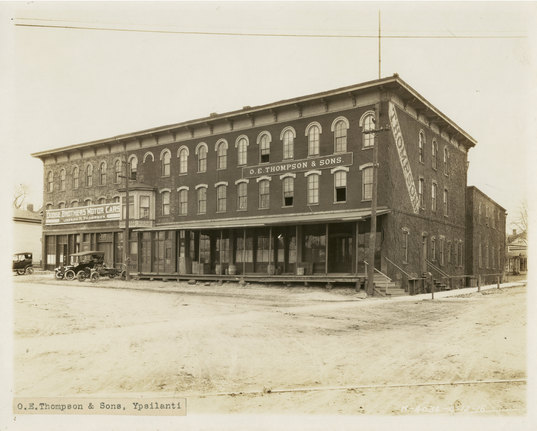
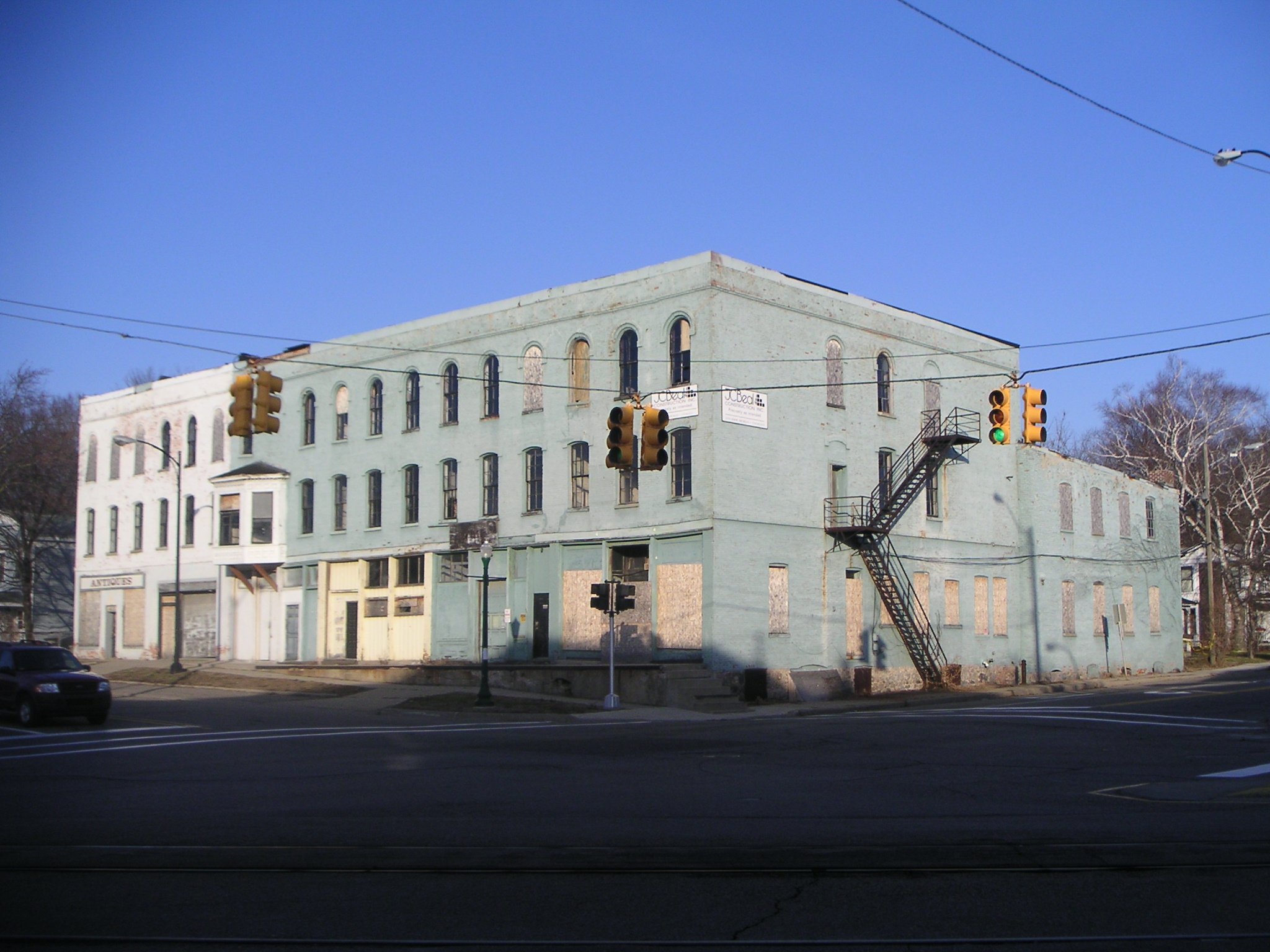

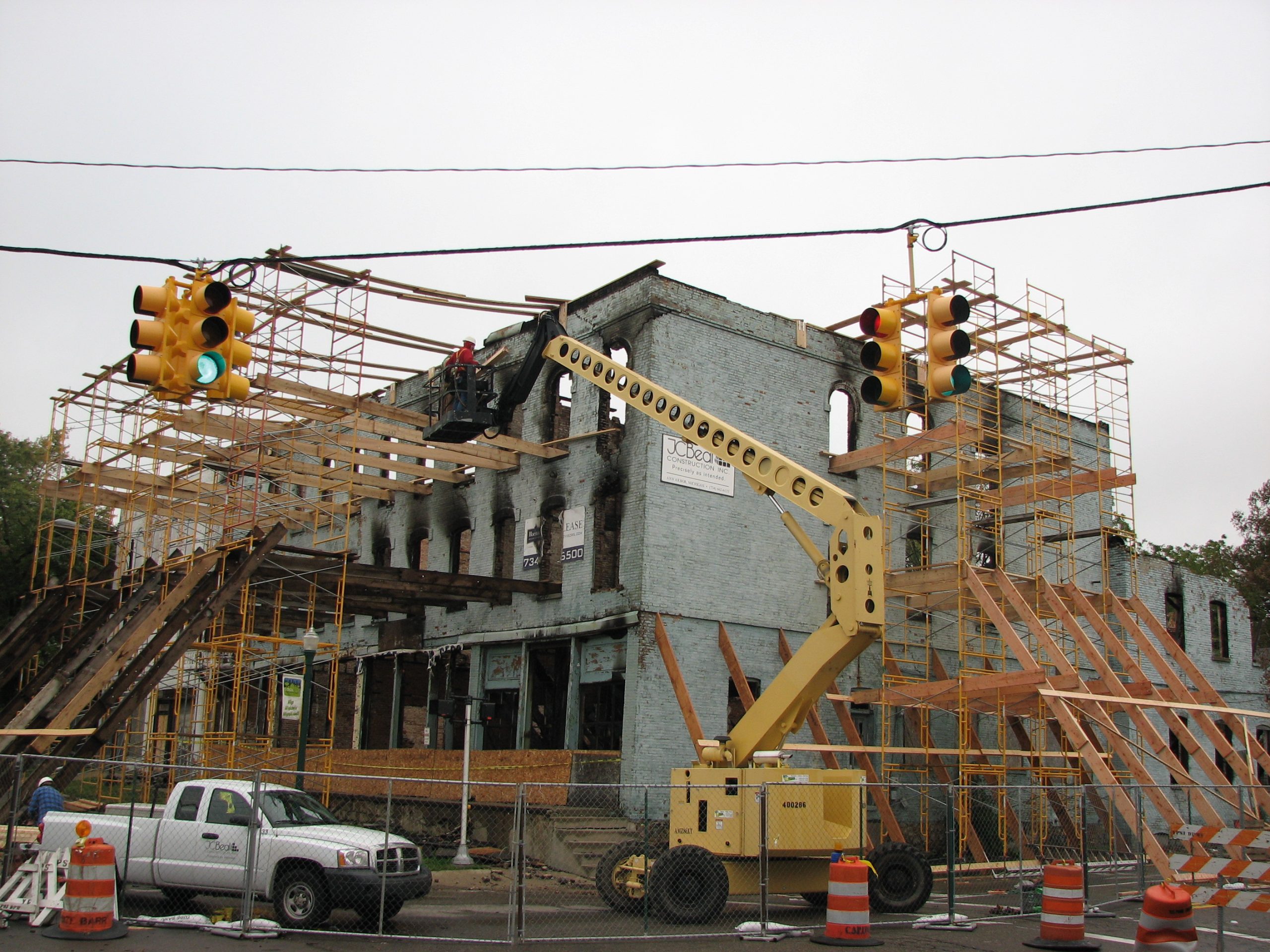
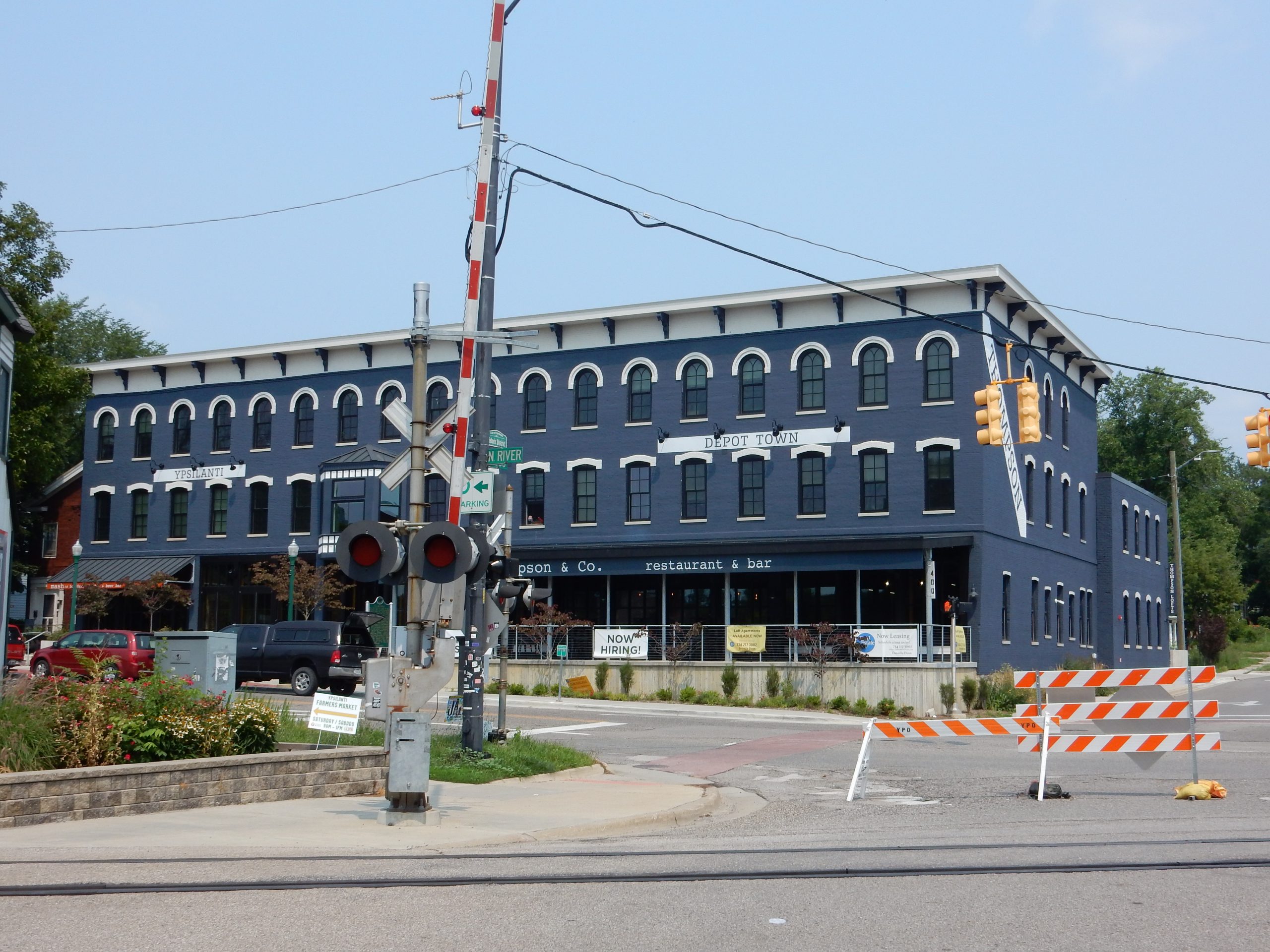
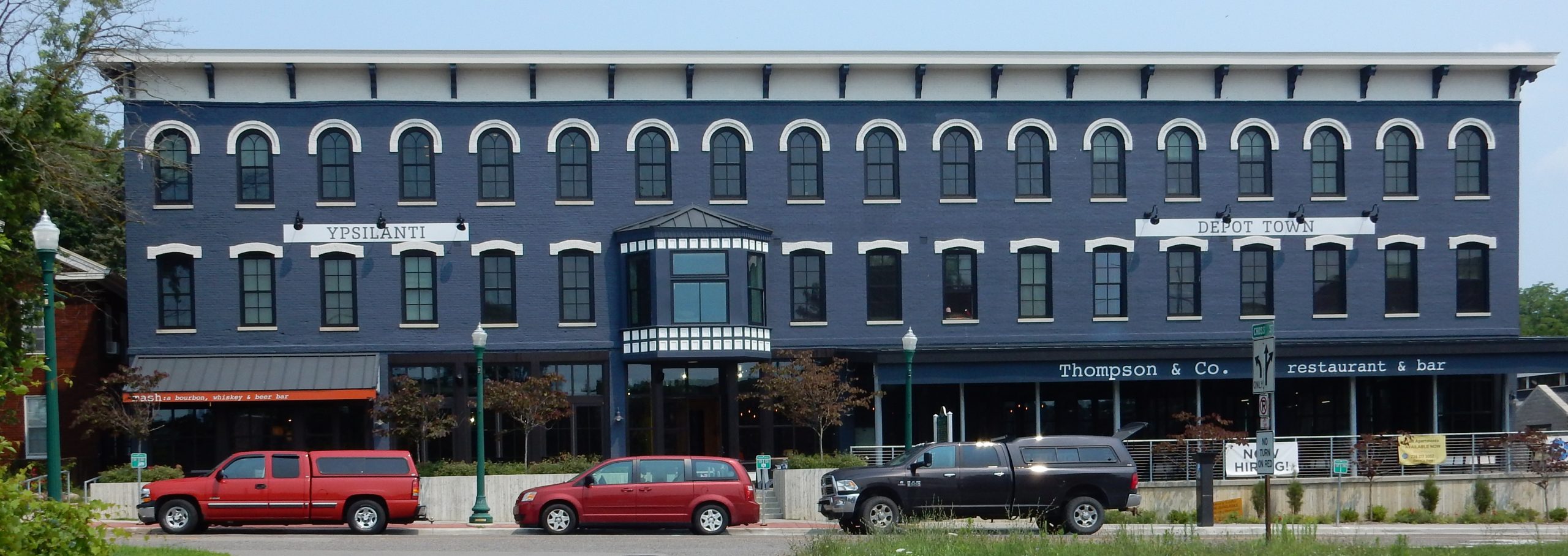
Built in 1860 by Ypsilanti pioneer Mark Norris, this historic three-story Italianate Thompson Block building was planned for retail and residential use. But the Civil War intervened and the building became a war barracks.
Mark Norris, founder of the Depot Town area, had owned the Western Hotel across the street where the railroad depot is today. The hotel was torn down to expand the railroad and Norris had the bricks from the hotel demolition site carried across the street for his new building.
A fire gutted the building in 2009. Then a development team led by Original and Only Thompson Block LLC signed on in 2017 to rehabilitate this neighborhood landmark. Stabilizing the masonry walls was a substantial challenge. The entire structure had to be repointed, with selective reconstruction to match the pre-fire profile of the building. The use of many historical photographs guided the work. The $13 million rehabilitation project employed both Federal and State Historic Preservation Tax Credits, a pre-development loan from the Michigan Historic Preservation Network, and received a $3.2 million award from the Michigan Community Revitalization Program.
The Thompson Block reopened in 2021. Upper floors have returned to their original use as dwellings, with 20 loft-style apartments, and two new restaurants occupy the ground floor. What was once seen as a dangerous eyesore is now a new destination, further reinvigorating the Ypsilanti Depot Town neighborhood.
(Excerpted from 2007 YHF Home Tour booklet and Michigan Economic Development Corporation)
Glanfield House
113 Buffalo, Queen Anne, built 1892
YHF Historic Structure Marker awarded 2019
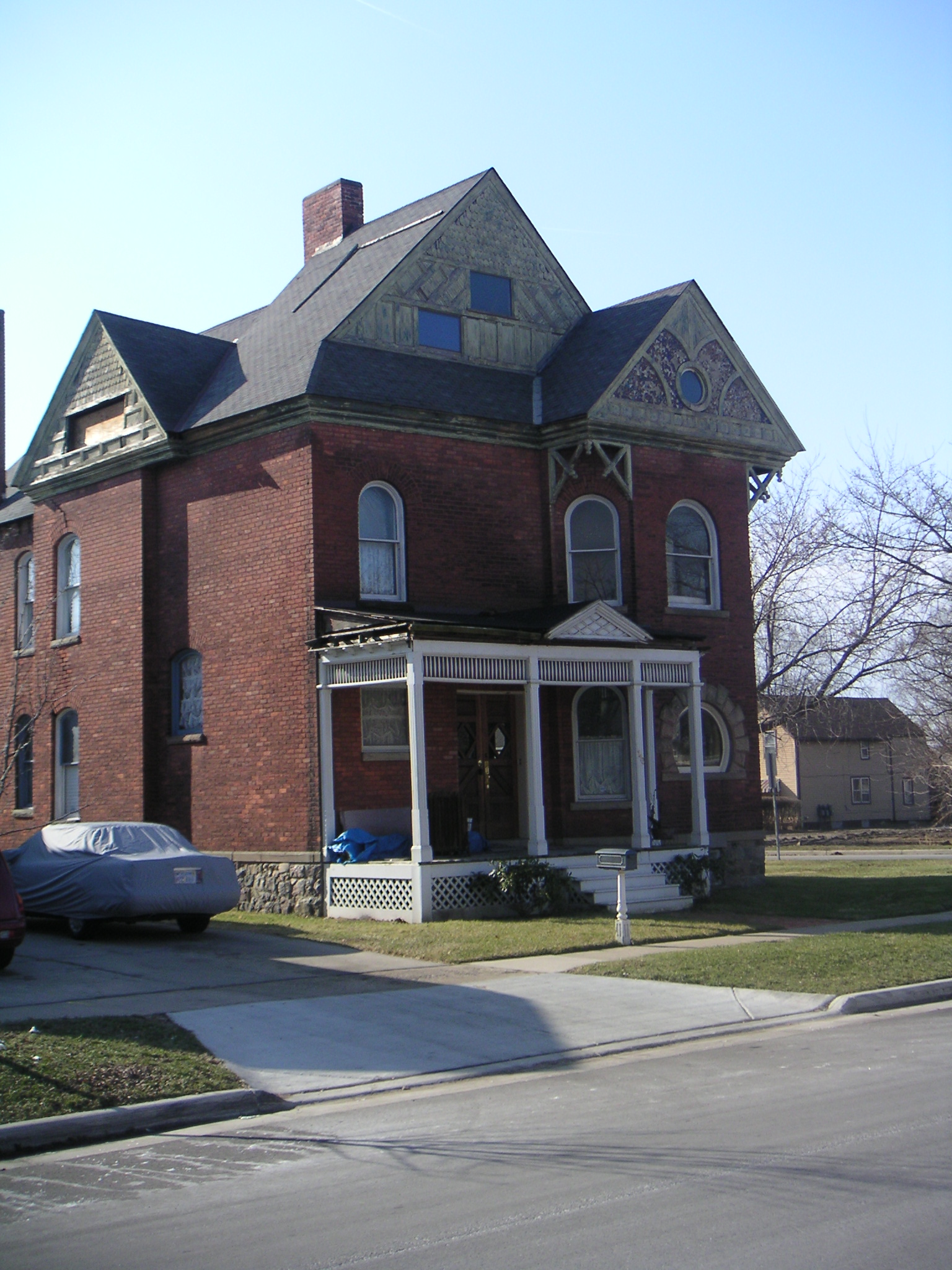
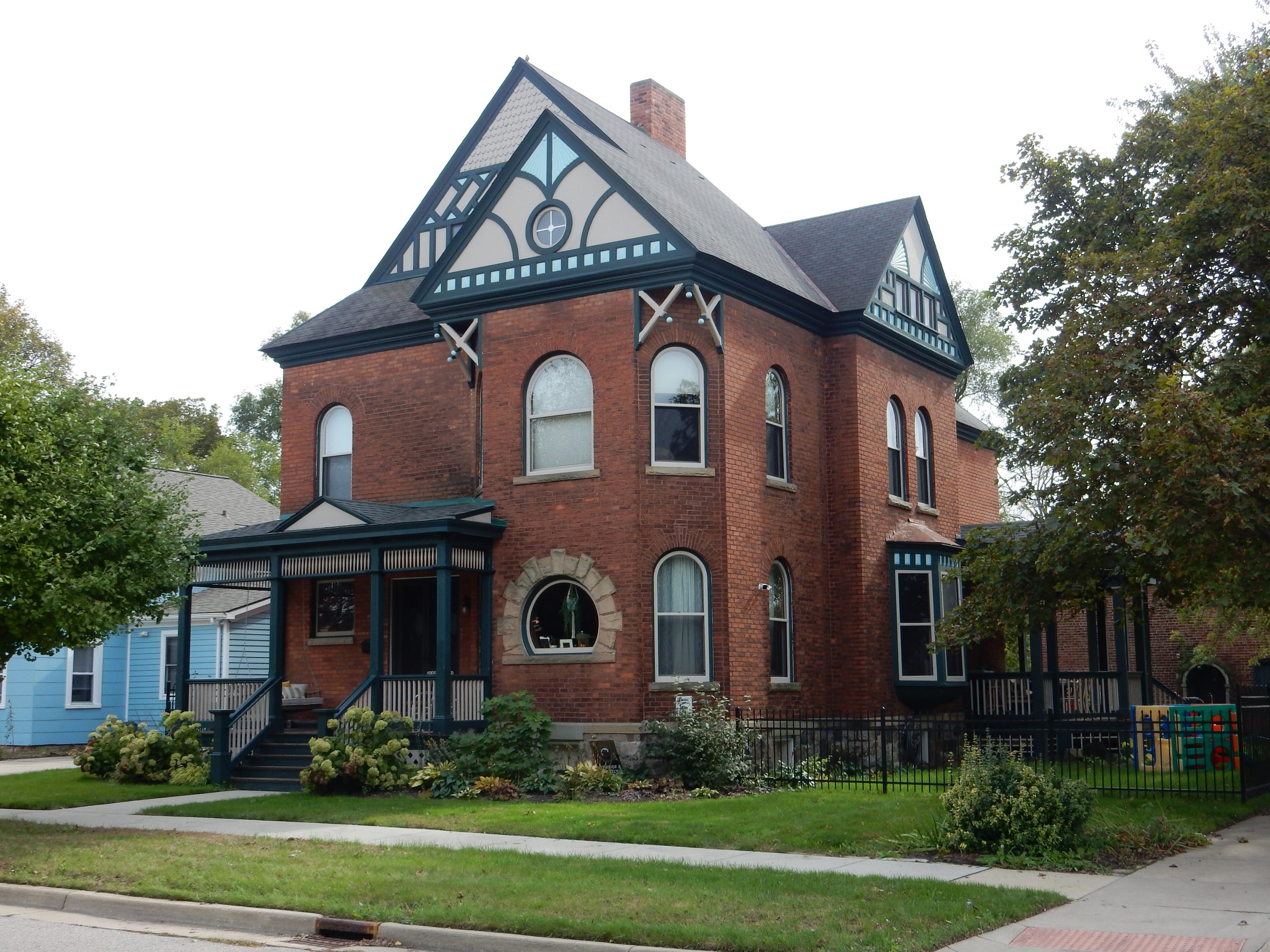
Pea Cottage
1104 Pearl, built 1924, porch added and renovated 2008
YHF Historic Structure Marker awarded 2010
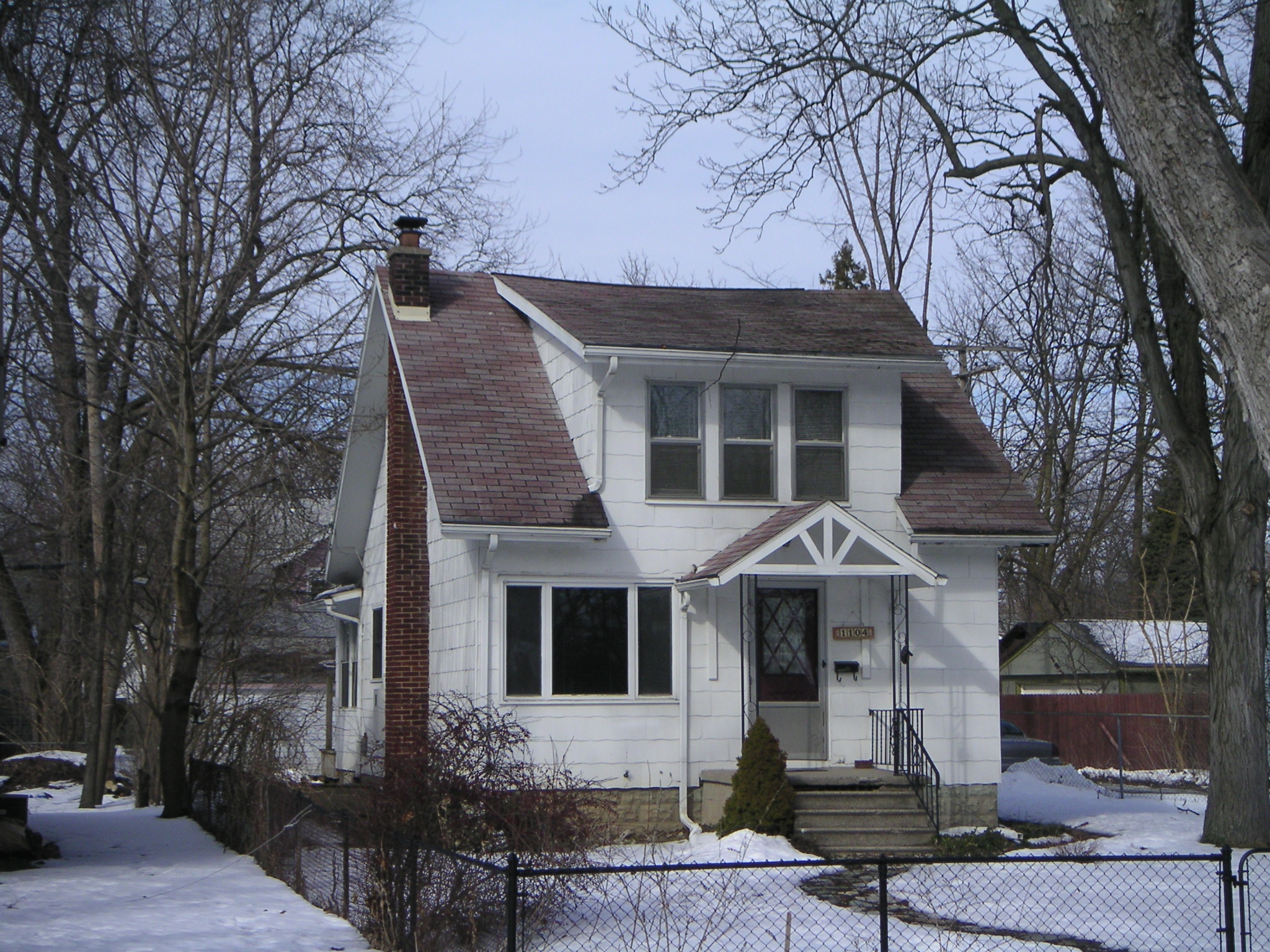
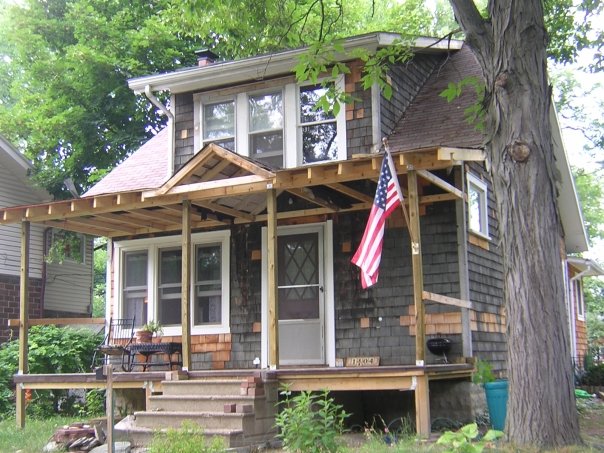
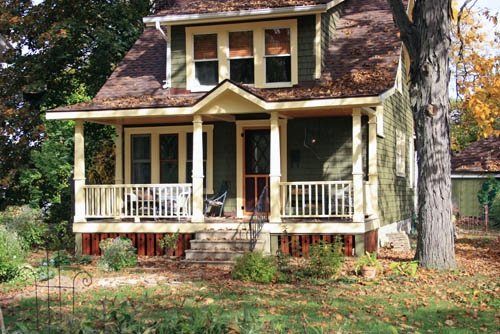
Gilbert Mansion
227 N. Grove, built 1861
YHF Historic Structure Marker awarded 1988
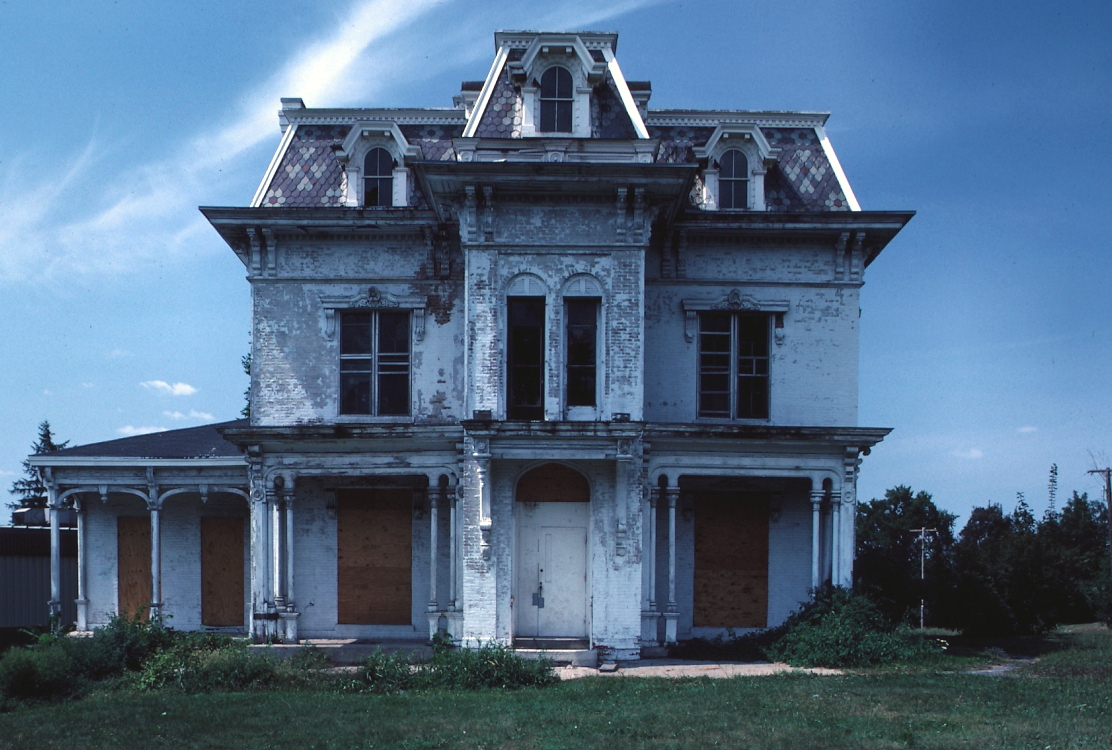
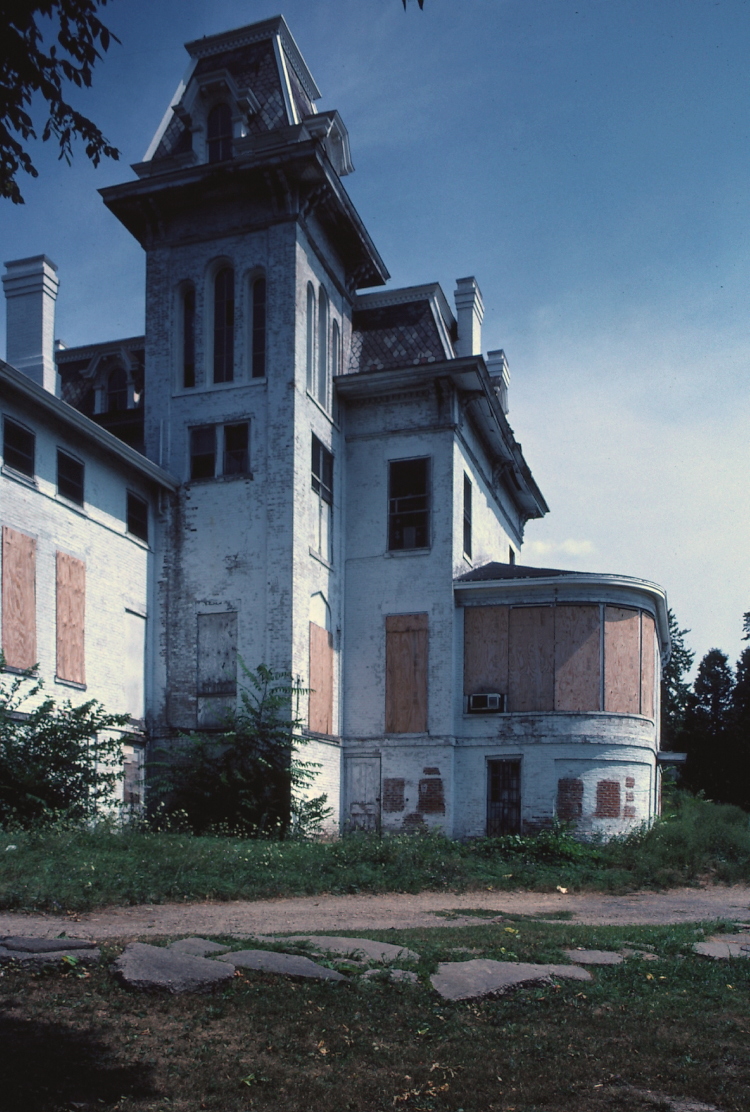
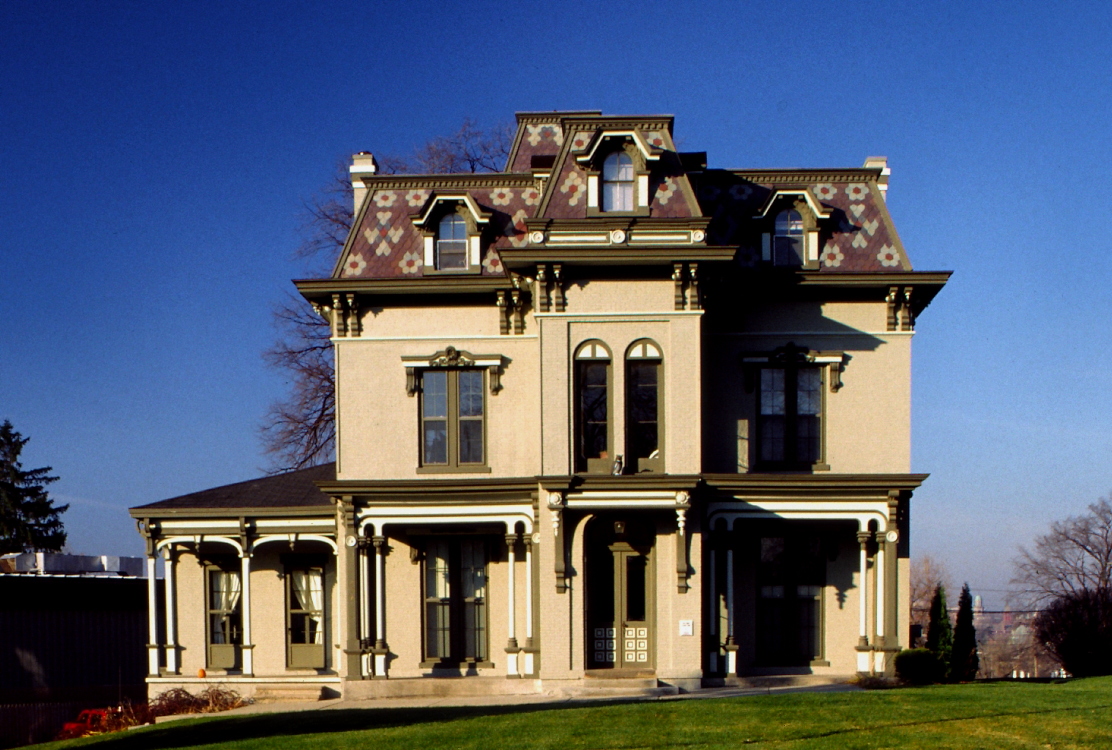
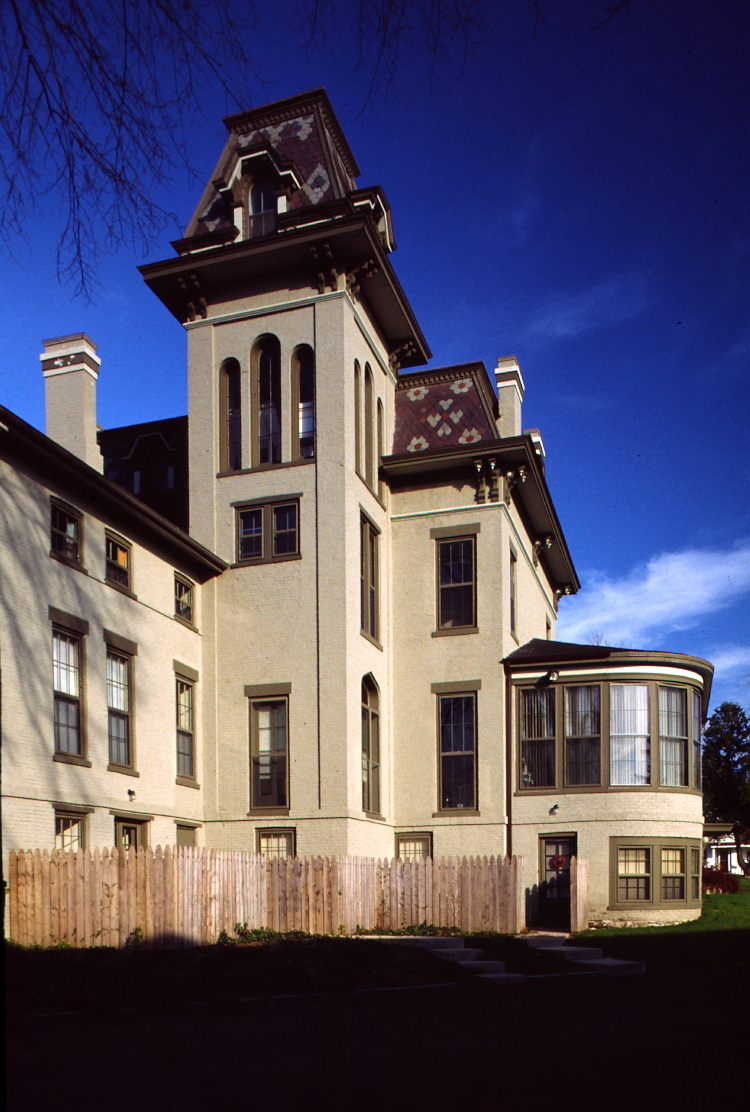
The stately Gilbert Mansion, is a jewel of the Second Empire style (1855 – 1885). Built in 1861 and rehabilitated in 1988, this elaborate home boasts two towers, a slate roof, exquisite porches, and rich architectural details.
Constructed for John Gilbert, it was owned by his family until the Great Depression. The city of Ypsilanti then gained possession of the house after Major Gilbert’s death. The house became a teen canteen in the 1940’s and 50’s and eventually the Boys’ and Girls’ Clubs.
The house became more and more dilapidated and was eventually closed to the public. The City of Ypsilanti slowed the deterioration by installing a new roof in the 1970’s, but it continued empty and forlorn until 1986.
Now owned and meticulously restored by Steve and Chris White of Osprey Construction, the mansion has been divided into seven unique and lovely apartments.
(Excerpted from 1991 YHF Home Tour booklet. According to James Mann, the Gilbert Mansion was owned by Daniel Smith after the Gilbert family and before the City of Ypsilanti gained ownership.)
Towner House
303 N. Huron, built 1837
YHF Historic Structure Marker awarded 1976
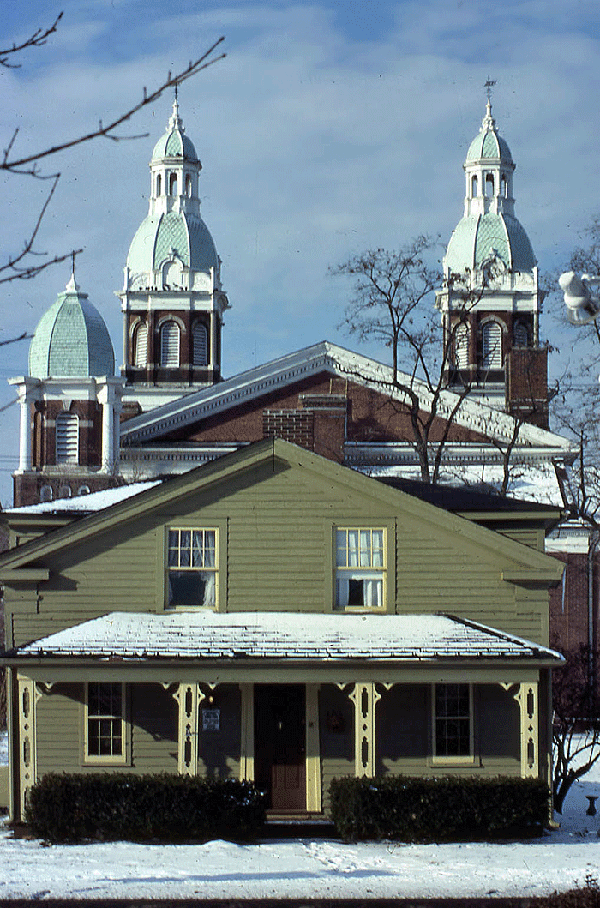

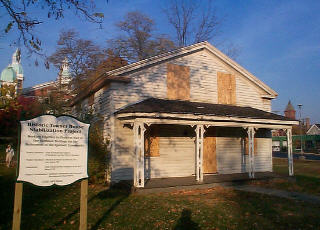
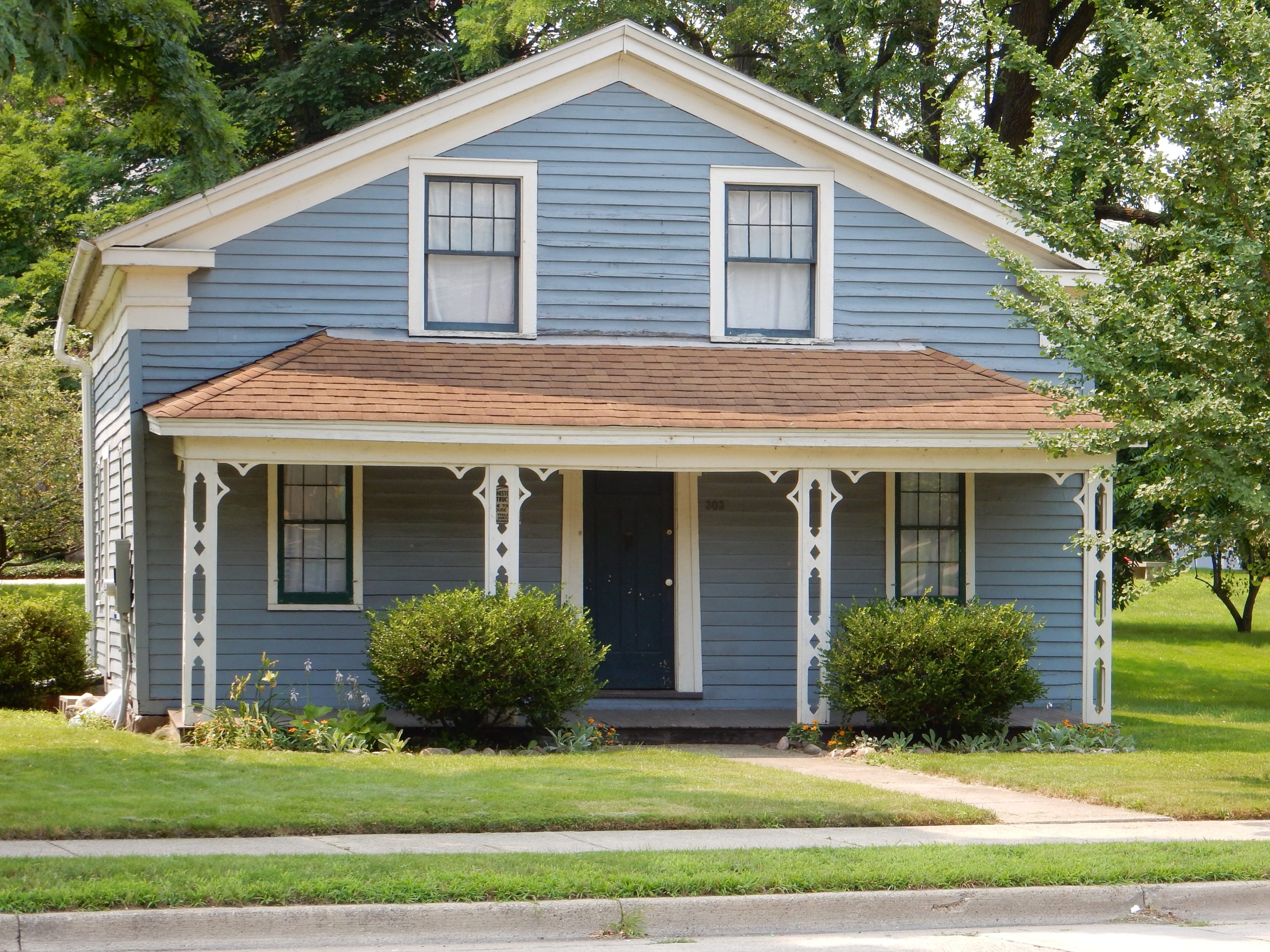
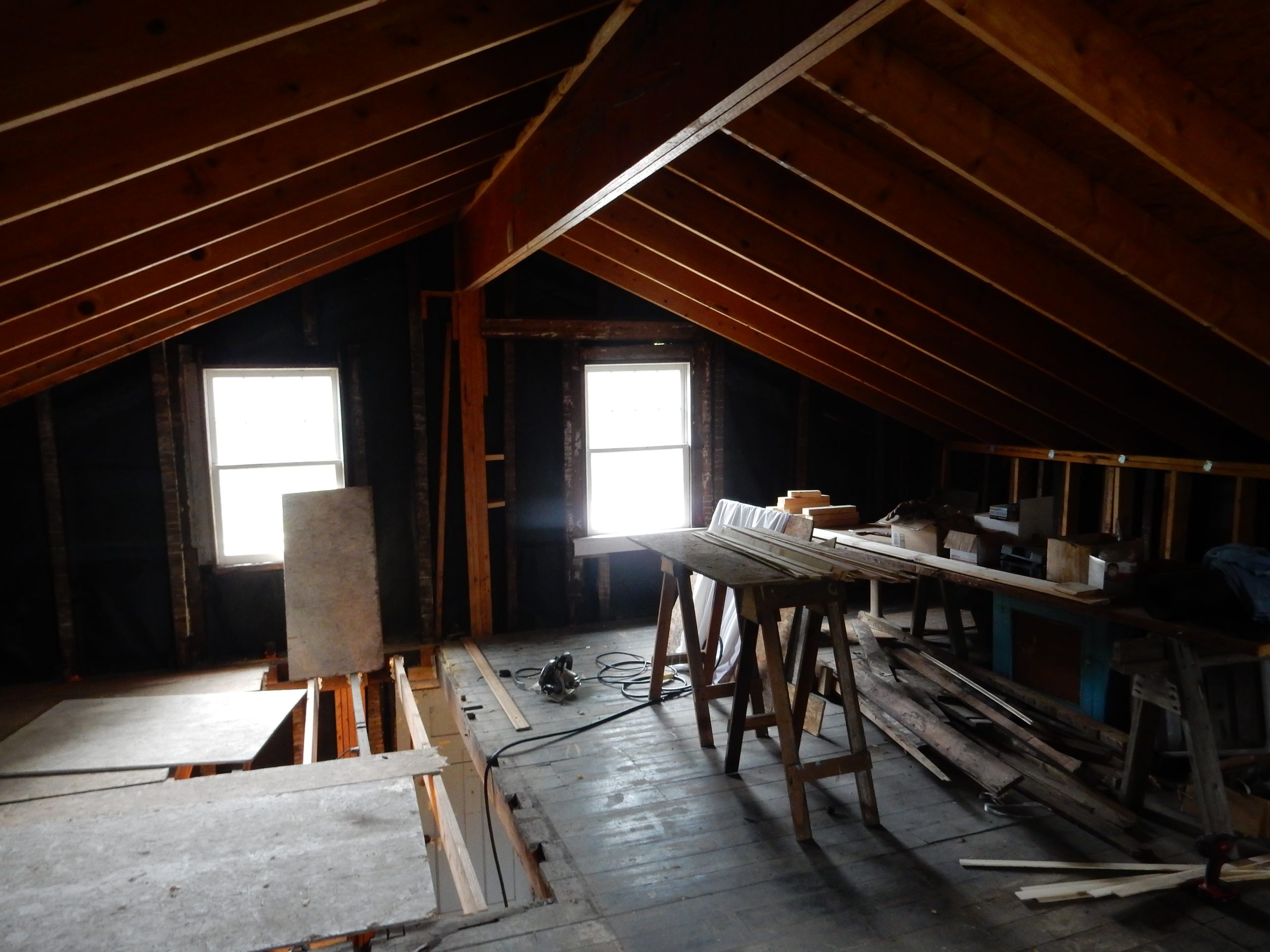
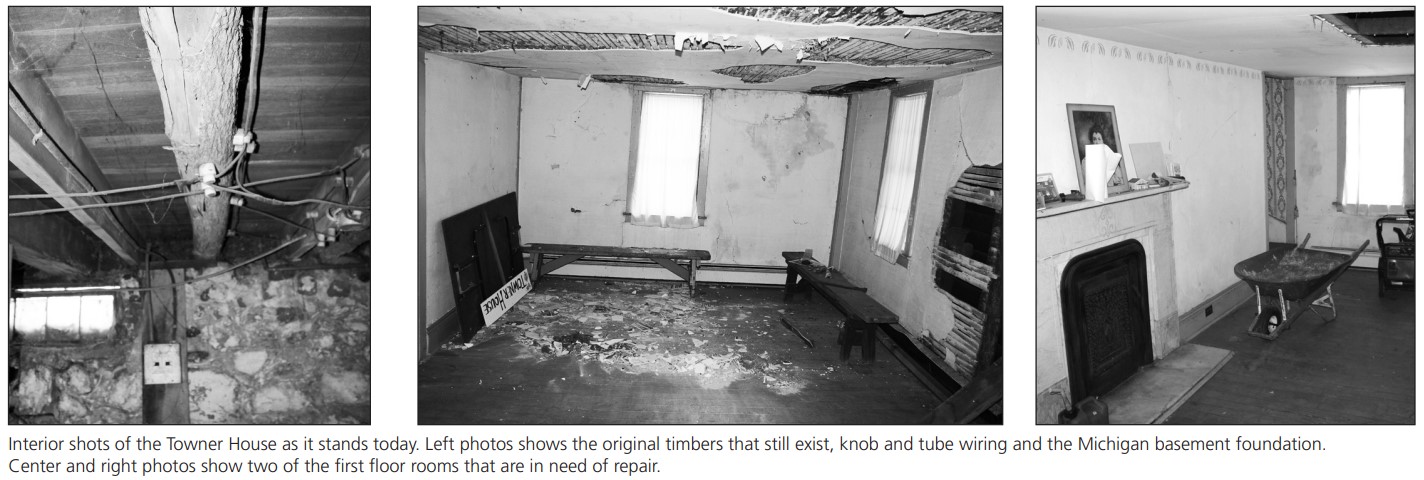
The Towner House at 303 North Huron still stands on its original stone foundation. Its post and beam construction with most of the original beams are still intact. The architectural style is Greek Revival which was very popular in the 1830-1840s. The current structure is the same size and shape as the original structure built in 1837.
Marcus Lane and Arden Ballard purchased the property where the Towner House now resides for $181.37 in February 1836. In April of 1837 Mr. Ballard and his wife quit their claim to the deed for the sum of $500. Marcus Lane became the sole owner. Both men made significant contributions to other major buildings in the neighborhood, notably the Ladies’ Literary Club and the Breakey Mansion.
Marcus Lane was one of the first lawyers in Ypsilanti and later became a judge. He was one of the founding members of the Vigilance Committee to maintain law and order within Ypsilanti. He was also one of the original partners in the first banking endeavor to form in this community. Marcus Lane died in 1840. The executor of his estate was John Geddes, a well-known businessman, who operated a saw mill, flour mill and plaster mill.
In March of 1851 the house was sold to Nancy Spencer Towner, widow of Ephraim Towner. Nancy had several children from a previous marriage including Jennette Spencer. Ephraim had eight children by his first wife Anna who died in child birth in 1816. Norman Towner was his youngest. Norman Towner and Jennette Spencer married in May of 1854. Step-brother and step-sister became husband and wife. The couple moved into the home around 1858. Norman became City Clerk in 1870. His later job was as a bookkeeper for a local farm implement company. The couple had five children, two of whom died at a young age. The remaining three children, daughters Anna and Caroline and son Tracy lived in the home their entire lives.
Because of the almost 100 years of occupancy by the Towner family, the home received its name “The Towner House”. While the Towners owned the house, additions were added and a garage was built, more than doubling the size of the original structure. Since the Towners had no heirs, the house was left to St. Luke’s Episcopal Church.
In 1951 G.L. Stewart and his family bought the house and occupied it until 1968. For the following 4 years the house was a rental property. The First Presbyterian Church of Ypsilanti purchased the property in 1972. The church razed a newer house that was located between the Towner house and the church building. Their next step would have been to demolish the Towner House.
A group called the Ypsilanti Heritage Foundation was formed to save the Towner House from demolition. A lease agreement between the Presbyterian Church and the Heritage Foundation was formed in 1975. Gary Decker, who worked in the EMU theater department, moved into the house. A new heating system and other improvements were made at that time. After 6 years, Gary Decker moved out and the lease between the Heritage Foundation and the First Presbyterian church expired.
A very significant event occurred in 1978 when the City of Ypsilanti passed the Historic District Ordinance. This law made a large part of central Ypsilanti a historic district. Buildings located within the designated area, including the Towner House, could not be demolished or altered without consent of the Historic District Commission.
The Ypsilanti Historical Society, which operates the Historical Museum located at 220 North Huron, leased the Towner House for a Children’s Museum starting in 1982. The purpose of the Children’s Museum was to provide a hands-on learning for children under the age of 16. Elementary age school children were invited to the Towner House for demonstrations and activities illustrating early life in Ypsilanti. The Presbyterian Church and Historical Society signed a 10-year lease but by 1990 the Children’s Museum ceased to exist.
The Towner House fell into disrepair and in 1992 petitions were submitted to the Ypsilanti Historic District Commission (HDC) for permission to demolish the structure. The HDC denied the request and a lengthy court battle began between the church and the City of Ypsilanti. By 1999, a mediated consent agreement between both parties was reached. It called for the removal of all of the additions except for the original structure and the installation of a new roof. The final piece of the agreement called for a committee of citizens to be in charge of maintenance and repair of the building. The length of the agreement was 25 years. The group became the non-profit Towner House Foundation, LLC.
Between 2000 and 2007, the Foundation painted the structure, repaired windows and doors, replaced front and back porches, repaired the back west wall and foundation. For the first time in many years the Towner House looked good. Internally the house was just a shell. Plaster was falling from walls and ceilings. The Towner House needs all of the utilities; heating, wiring and plumbing which is estimated to cost over $100,000. Without the ownership of the property, the Towner House Foundation could not apply for grants to start the interior restoration. To make things worse, a major recession hit Michigan in 2009 leaving many non-profit organizations struggling for money.
In 2012 The Towner House Foundation started negotiations with the Church and, on December 30, 2014, the Towner House Foundation purchased the property from the First Presbyterian Church. Eastern Michigan University’s Preservation Department has offered to partner with the Foundation to help preserve and rehabilitate the building.
As of 2022, the Towner House Foundation continues to raise money to restore the interior and install utilities.
Many thanks go out in large part to the Ypsilanti Heritage Foundation and its financial support in the purchase of the home, to the City administrators and legal boards that worked with us throughout the process of the purchase. Finally, to the First Presbyterian Church membership and Session, without their help none of this would have been possible.
(Excerpted from History of the Towner House by John Harrington)
YHF Marker Properties
Since 1976, the YHF Historic Structure marker awards program has recognized more than 200 homes, businesses, churches, and other community buildings in Ypsilanti for significant historic architecture and preservation.
YHF Home Tours
The Historic Home tour is sponsored by the YHF. Proceeds from the tour fund the marker awards, community projects, and education programs on preservation-related topics.
YHF Newsletter
The YHF periodically publishes its newsletter, Heritage News, and distributes it free of charge to its membership by mail and to the general public at various locations throughout the city.
Updated on August 3, 2024 by Paul Schreiber (PaulSchreiber@comcast.net)